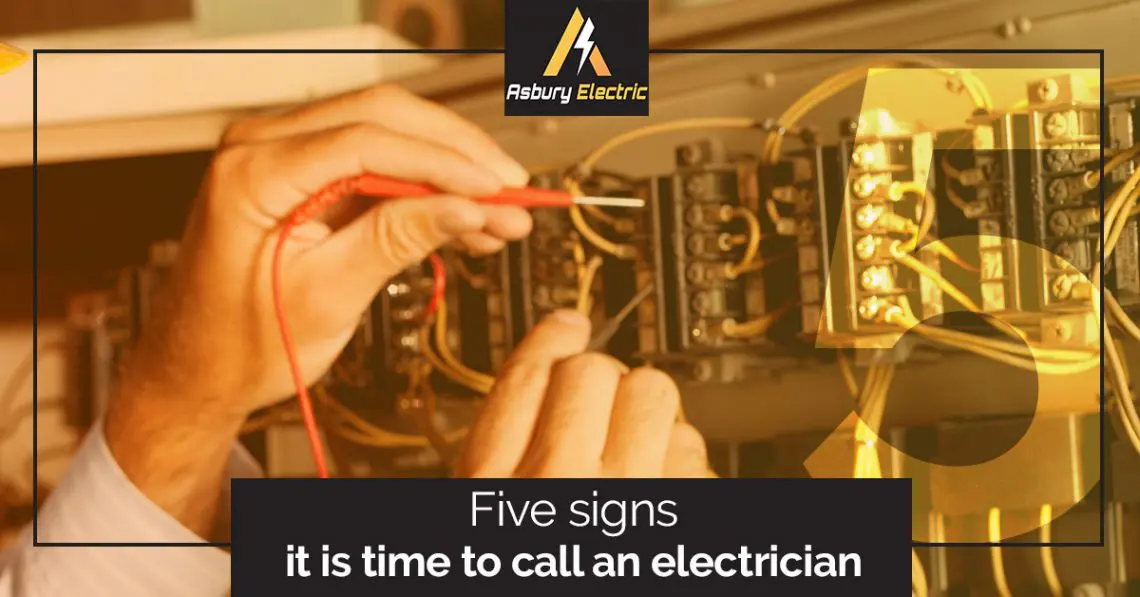Many electrical problems you encounter in your home may seem like small issues that you can easily take care of yourself. While this may be true, it’s important that doing it yourself doesn’t create bigger problems. Understanding what you are doing before you begin a project, no matter if it’s big or small, is vital to success. Here is a list of the #1 common electrical DIY mistakes, what to look out for, and how to avoid turning a quick fix into a bigger problem. If you have a problem or need a professional Asbury is always here for full service electrical repairs!
Wire and Cable Size
Understanding the jargon is key when working on electrical projects. Not only do you want to sound like you know what you are doing, you need to understand the terms so you can read directions.One important term to remember is “gaugeâ€, which refers to the size of a wire. While a wire is a singular strand of conductive material, a cable is a group of two or more insulated conductors. By selecting the proper gauge of wire or cable, you are ensuring that the connection will be secure. The #1 common electrical DIY mistakes can be avoided by just knowing the terminology. Using the wrong gauge could result in the wires overheating or a short in the fuse or circuit.
Here is a link to some electrical terminology, but you can also search for specific terms online or contact Asbury Electric – we are more than happy to answer any questions and help with projects. https://testguy.net/content/200-Basic-Electrical-Terms-and-Definitions
Fittings for Outlets and Switches
When repairing or installing outlets or switches, it is vital to tightly secure them. Loose fittings can cause electricity to jump or arc, or overheating – which can both cause electrical fires. Ensuring that you have the proper length of wire or cable is also really important if you are making a connection in a junction box. Wires that are too long or too short can both be problematic. The #1 common electrical DIY mistakes can be caused by simple problems, such as a screw that is loose or a wire that is not the right length.
Inspecting vs. Replacing Fuses
If a fuse blows in your home, or if a breaker trips, that is a sign of an underlying, larger problem. Although it is easy to simply replace the fuse or reset the breaker, you should hire a licensed electrician to inspect the circuit. Tripping breakers and blown fuses are warning signs that should not be avoided. If the problem continues, an electrical fire could be started. Don’t wait for the worst to happen, know the warning signs and call a licensed electrician as soon as you see issues.
Light Bulb Wattage
One common misconception is that if a light bulb fits into a socket, then it must belong there. Don’t just screw a bulb in – actually read the wattage that the socket and the bulb are. If you use a light bulb that does not have a high enough wattage, the socket will send more electricity to the bulb than it is rated for, which can cause the bulb to overheat and start a fire. By using the proper wattage, you are reducing the likelihood of overheating, as well as allowing the bulb and socket to work as efficiently as possible.
Overloaded Outlets
The #1 common electrical DIY mistakes we encounter is the overloading of outlets. Obviously plugging too many things into one outlet can cause the circuit to short out. It is also important to look at the amps each outlet can handle. Just because an outlet is not being used does not mean that it is designed for anything. Make sure that all appliances, especially in the kitchen, have their own dedicated circuit. The general rule is that things that generate heat or cold use the most electricity and require the most amps to run. Clothes dryers, HVAC units, refrigerators, microwaves, and space heaters usually use the most electricity, so they need to be plugged in to their own outlet and circuit. It’s also important not to overload outlets during the holidays with decorative lights, or when cooking a big meal with lots of appliances. Simple problems can normally be fixed by the owner of the house, however if you have any issues Asbury Electric can provide full service electrical repairs!
For more information and tips on how to avoid a DIY mistake, check out https://www.familyhandyman.com/electrical/7-common-mistakes-diyers-make-with-electrical-projects/view-all/

